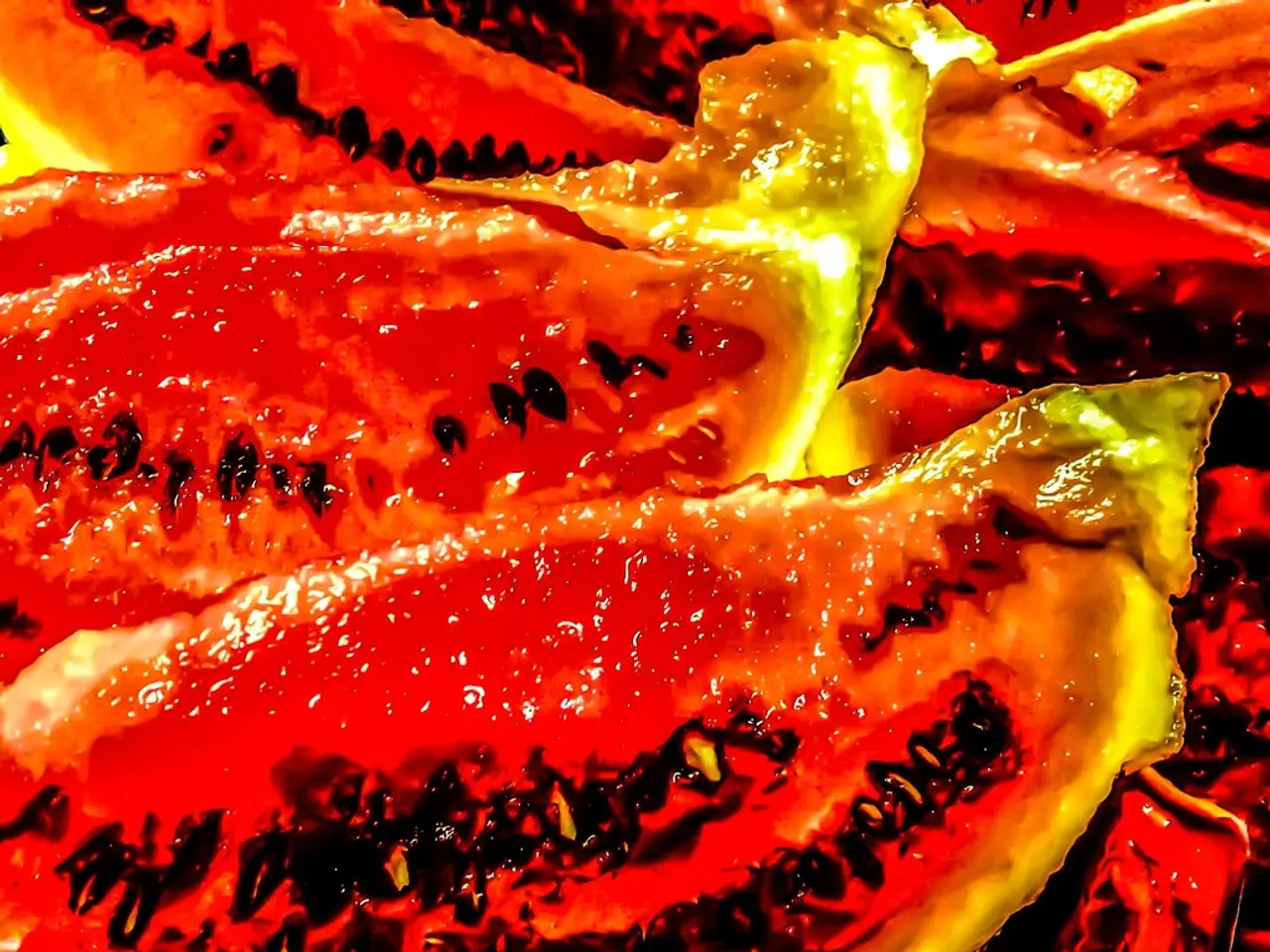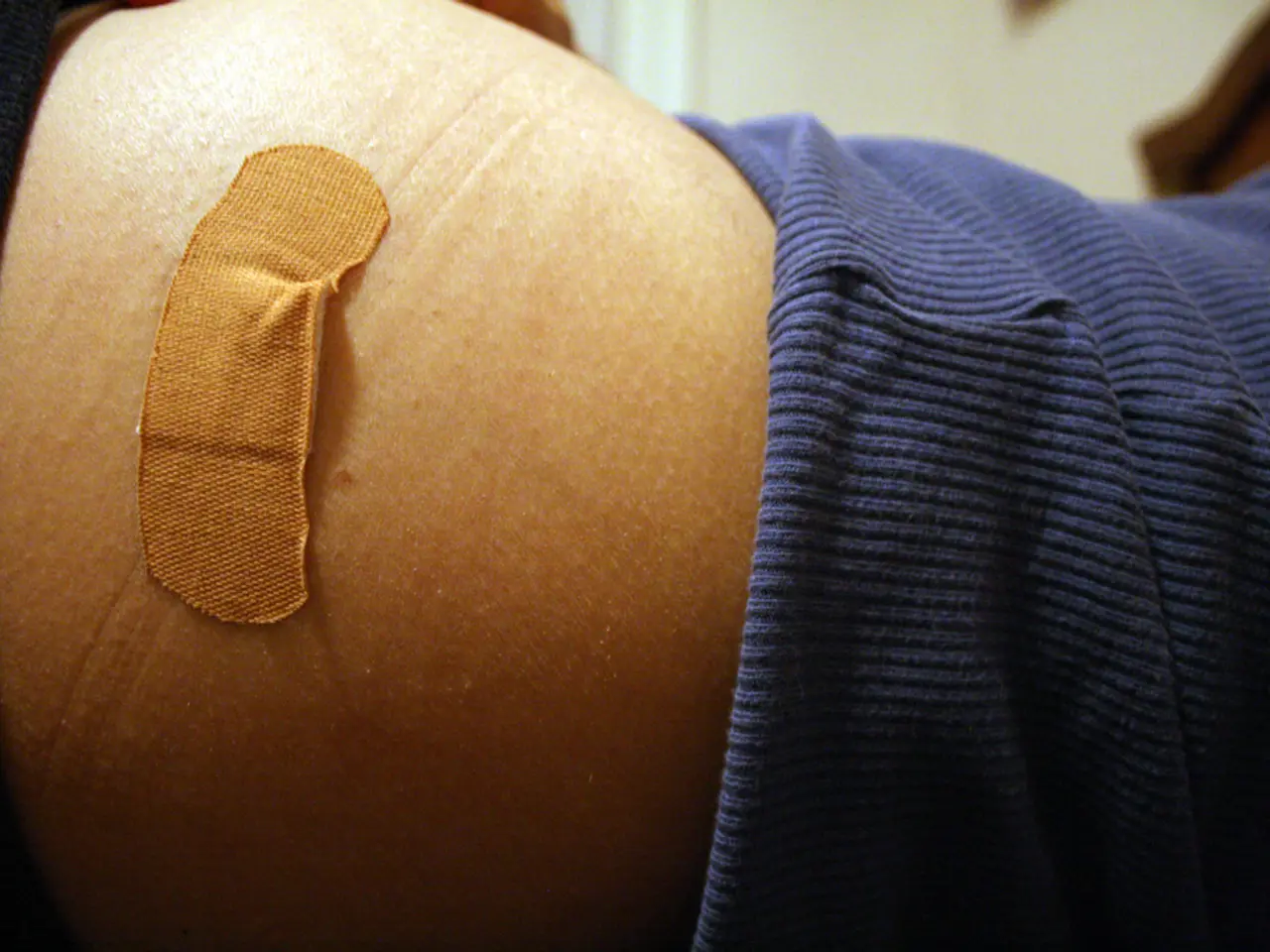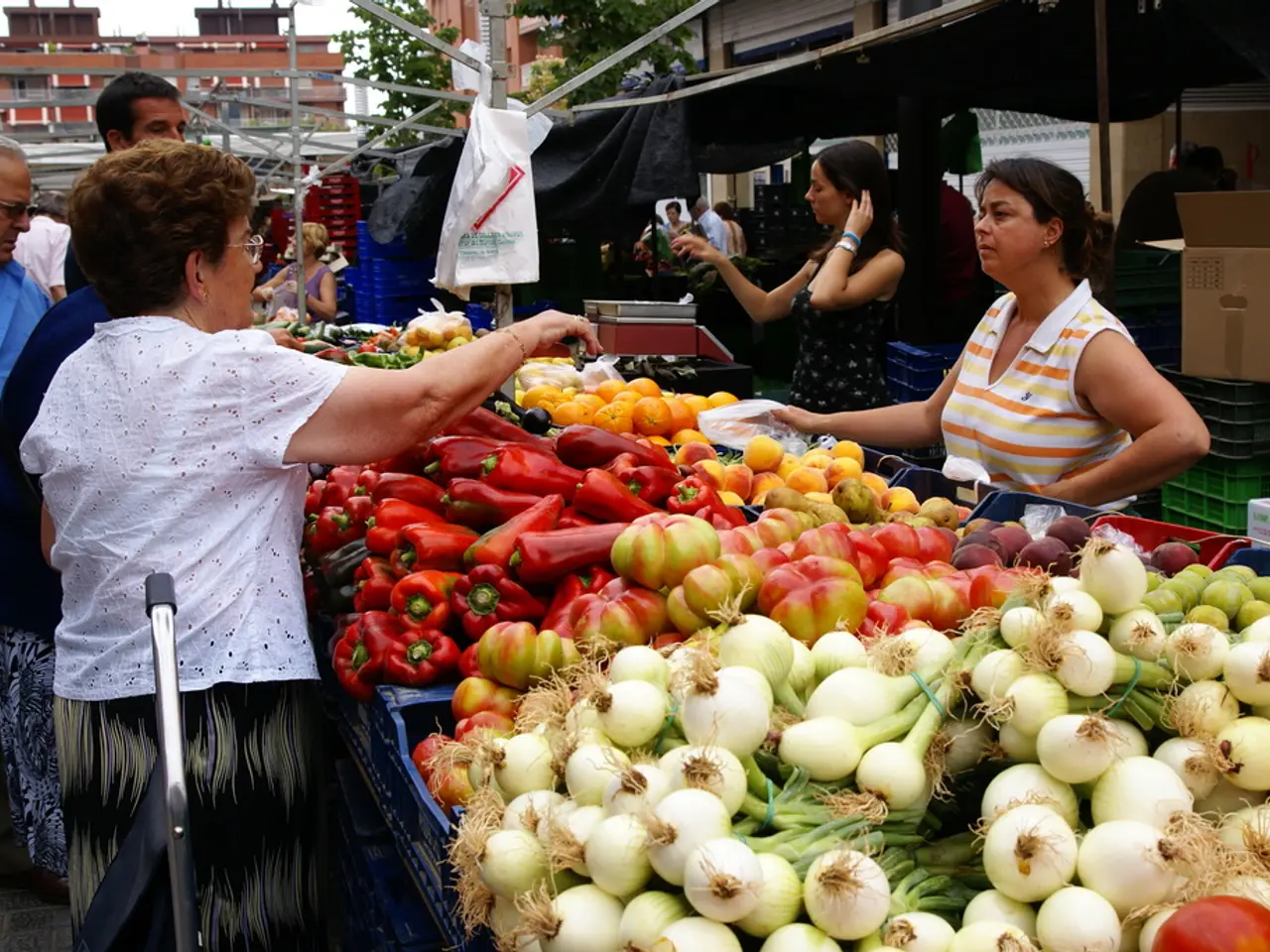Artificial color elimination announced by Skittles, Hershey, and Nestle in public relations move
In the final days of the Trump administration, the focus on the nation's food supply and health took centre stage. While some changes were made, many nutritionists and public health researchers remain skeptical about the administration's claims.
Robert F. Kennedy Jr., the Health and Human Services Department secretary, and his MAHA movement have brought attention to unhealthy foods, chronic disease, and major companies' influence on the food system in America. Kennedy has been pressuring food companies to voluntarily remove all food dyes from their products, but many have been moving away from synthetic dyes for years due to pressure from consumers, health advocates, and bans or restrictions in states like California, Virginia, and West Virginia.
The US Food and Drug Administration banned red dye No. 3 in food, beverages, and ingested drugs in January, but the agency has yet to enact any significant measures to cut down on ultraprocessed foods. Ultraprocessed foods account for up to 70% of the US food supply and include many popular brands of chips, cookies, candy, ice cream, and pre-made meals.
Companies have only made changes due to consumer demand for natural ingredients, and the administration's funding cuts for healthcare, food stamps, research, and public health programs run contrary to its goal of making Americans healthier. More than 22 million families will lose some or all of their Supplemental Nutrition Assistance Program (SNAP) benefits, potentially increasing reliance on cheaper, ultra-processed foods.
The administration did implement one key policy action: a joint Request for Information (RFI) by the Departments of Health and Human Services (HHS) and Agriculture (USDA) to define ultra-processed foods, aiming to establish a uniform standard for future regulation. However, this effort remained at the information-gathering stage without producing binding regulations or direct restrictions on ultra-processed foods.
Dr. Marion Nestle, an emeritus professor of nutrition and food studies at New York University, stated that removing artificial colors from junk food is a nutritionally meaningless way of giving compliant junk foods the aura of health foods. Dr. Barry Popkin, a professor of nutrition at the University of North Carolina, stated that these changes are just PR.
Advocates will be looking to see if the report signals the administration may try to mandate front-of-package warning labels or crack down on marketing junk food to children. The Center for Science in the Public Interest's science director, Aviva Musicus, has expressed concern about the lack of a plan to hold industry accountable for not cooperating in improving the food supply.
In summary, the Trump administration's approach to ultra-processed foods was mostly preparatory and inconsistent, lacking substantive policies that directly reduced their prevalence or significantly improved related health outcomes. The overall impact on Americans' health from these policies was minimal or potentially negative due to weakened nutrition assistance and research support.
- Despite the Trump administration's focus on the nation's food supply and health, nutritionists and public health researchers remain skeptical about the administration's claims.
- The administration implemented a joint Request for Information (RFI) by the Departments of Health and Human Services (HHS) and Agriculture (USDA) to define ultra-processed foods, but this effort remained at the information-gathering stage without producing binding regulations or direct restrictions on ultra-processed foods.
- Companies have made changes due to consumer demand for natural ingredients, but the administration's funding cuts for healthcare, food stamps, research, and public health programs run contrary to its goal of making Americans healthier.
- Dr. Marion Nestle, an emeritus professor of nutrition and food studies at New York University, and Dr. Barry Popkin, a professor of nutrition at the University of North Carolina, have both stated that removing artificial colors from junk food is a nutritionally meaningless way of giving compliant junk foods the aura of health foods, and that these changes are just PR.




